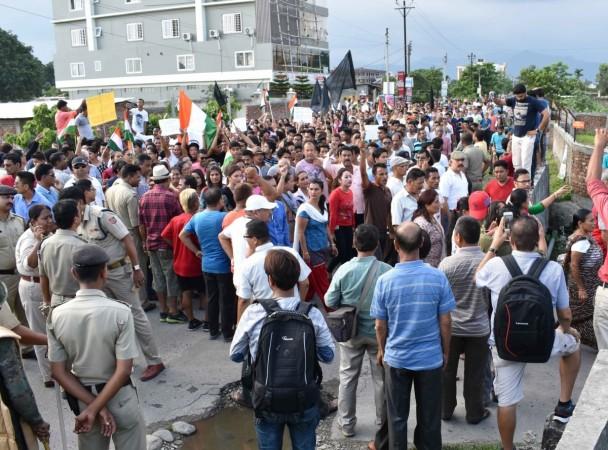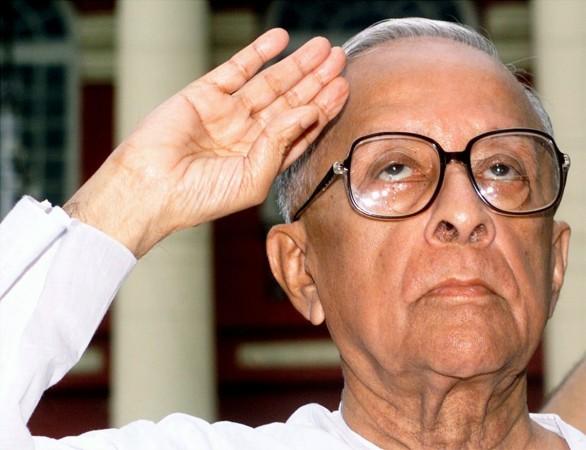
He is generally known to be a man who stays off the limelight. Just 289 days short of becoming the longest-serving chief minister of the country, Sikkim's Pawan Kumar Chamling is not in the league of those leaders who are known for their eye-catching talks on national politics. Chamling, also known as the 'green chief minister', has been dominating his state for over two decades now and if everything goes fine, will eclipse the record of Jyoti Basu, the late chief minister of the neighbouring West Bengal.
But of late, 66-year-old Chamling has been found making statements that are controversial and could add worsen things in a region which is witnessing serious problems – both international and domestic.
'Sikkim did not join India to get sandwiched between China and Bengal'
Indian and Chinese troops are in the middle of a stand-off at the borders of eastern Sikkim while the Gorkhaland agitation is affecting the small state's southern parts. Chamling has been so perturbed by these twin troubles that he even said that the people of the hilly state had not chosen to join India only to get sandwiched between China and West Bengal. It may be noted here that Sikkim, formerly a monarchy, had acceded to India in 1975 and was recognised a part of India by the Chinese in 2003.

Chamling's remark has raised quite a few questions. When the Gorkhaland agitation snowballed, he had remarked that the separate state should be formed, inviting wrath from Trinamool Congress, the ruling party of Bengal. His government has also warned of suing Bengal for Rs 60,000 crore, saying the problems in Darjeeling time and again have made Sikkim face massive losses and it is time to recover it.
How can Chamling equate border trouble with Gorkhaland agitation?
Chamling's concerns are understandable. Being a small, landlocked state which is dependent on Bengal for its lifeline, the continuing trouble in Gorkhaland is bound to affect its normal life. But the veteran leader, whose Sikkim Democratic Front (SDF) is part of the BJP-led North East Democratic Front (NEDA), perhaps did not do it right by putting the international and domestic troubles in the same bracket.
The border stand-off is something international and only the Centre can take care of it. The problem in North Bengal is completely a domestic affair and it needs to be addressed by all concerned parties, including the two states of Bengal and Sikkim. Chamling's remark smacked of a tone of an independent-minded.

One reason why Chamling made this statement is perhaps he is facing the problem too big to handle. Given the disruptions at the border with Bengal and the way Sikkimese people are facing problems in northern Bengal after he openly supported the cause of Gorkhaland, Chamling is perhaps too frustrated. He is not liking his year of achievement to turn into a sour one.
Is Chamling expressing BJP's voice?
Secondly, one also suspects Chamling has a pro-BJP stance. Being a part of the NEDA, it is not surprising to see the Sikkim chief minister back, even if softly, the BJP by putting pressure on his Bengal counterpart Mamata Banerjee, one of the most stringent anti-BJP voices in the country at the moment.
One would also remember that during the talks over sharing of Teesta river's water between India and Bangladesh, Banerjee accused Sikkim of putting up too many dams on the river and also mismanaging water, causing inconvenience to her state. The TMC had also accused that the Centre did not take into account these allegations. Was it because Chamling is an ally of the saffron party which is in power at the Centre?
We wish Chamling a happy record-breaking but he is making a bit of too much reckless remarks of late. Staying in a region which is extremely sensitive for the interests of his own country, the chief minister of Sikkim needs to dissect his politics from risk. Not all can become a statesman, after all.

















